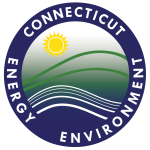Renewable Energy
The term "renewable energy" generally refers to electricity supplied from renewable energy sources such as wind and solar power, geothermal, hydropower, and various forms of biomass. These energy sources are considered renewable sources because they are continuously replenished on Earth.
Renewable Energy is a clean source of energy that can replenish itself for thousands of years to come. Fossil fuels on the other hand are finite, create harmful greenhouse gases and other emissions, and can require dependency on countries outside of the United States. Renewable Energy is important to lower our carbon footprint, lessen our dependency, and also helps to create jobs within the U.S.
For more information on renewable energy technologies, please visit Energy Basics: Renewable Energy on Energize Connecticut.
Connecticut's Renewable Energy Development Initiatives
Renewable Portfolio Standard (RPS)
A renewable portfolio standard (RPS) is a state policy that requires electricity providers to obtain a minimum percentage of their power from renewable energy resources by a certain date.
Renewable Energy Procurements
2019 Offshore Wind Procurement - On December 5, 2019 the Department of Energy and Environmental Protection (DEEP) announced its selection for the procurement of 804 MW of offshore wind power from Park City Wind Project, which will provide the equivalent of 14% of Connecticut's electricity supply.
Affordable and Reliable Electricity Procurement - Public Act 15-107, An Act Concerning Affordable and Reliable Energy, which authorizes the Commissioner of DEEP, in consultation with the state’s procurement manager, the Office of Consumer Counsel, and the Attorney General, to issue multiple solicitations—either alone or in coordination with other New England states—for long-term contracts from providers of resources that can provide Connecticut’s reasonable share of the investments New England needs to address the gas infrastructure challenge.
Shared Clean Energy
Shared Clean Energy Facility (SCEF) – An Act Concerning Connecticut’s Energy Future, under Public Act 18-50 Section 7(c), that directs the Department of Energy and Environmental Protection (DEEP) to develop program requirements and tariff proposals for statewide shared clean energy facility (SCEF) program.
Shared Clean Energy Facility Pilot Program (SCEF) – The Department of Energy and Environmental Protection, in consultation with Eversource Energy and The United Illuminating Company established the SCEF Pilot Program as a two-year initiative to support the development of SCEFs in Connecticut.
Related Initiatives and Programs
The Connecticut Green Bank offers incentives and innovative low-cost financing to encourage homeowners, companies, municipalities, and other institutions to support both renewable energy and energy efficiency.The links below allow you to follow the progress on DEEP’s renewable energy related responsibilities to implement a wide range of renewable energy initiative and programs.
Microgrid Grant and Loan Program – Connecticut created the Microgrid program under Public Act 12-148, Section 7 to help local distributed energy generation for critical facilities. A Microgrid generally operates while connected to the grid but can disconnect and operate in island mode on its own if there is a crisis such as a power outage or a major storm.
Siting Clean Energy on Connecticut Brownfields – Brownfields are particularly attractive for renewable energy because they require large sites for installation that usually have existing infrastructure needed to support development.
Content Last Updated December 2019

